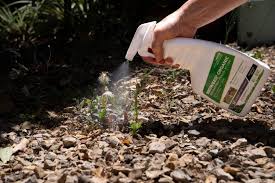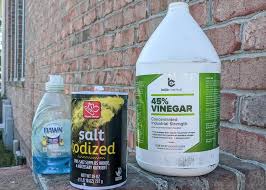Organic Weed Killer, Maintaining a lush, weed-free garden can be a challenging task, especially when you’re trying to minimize the use of synthetic chemicals. Fortunately, organic weed killers provide an effective and eco-friendly way to keep invasive weeds at bay. This article will explore the benefits, types, and application methods of organic weed killers, helping gardeners choose the right product for their needs.
What Is an Organic Weed Killer?
An organic weed killer is a product made from natural ingredients that are biodegradable and safe for the environment. Unlike chemical herbicides, these solutions do not contain harmful toxins, ensuring minimal damage to beneficial plants, animals, and soil microbes. Organic weed killers work through natural mechanisms, such as dehydrating weeds, disrupting their growth processes, or altering the soil conditions unfavorable for weeds.
Why Choose Organic Weed Killers?
1. Environmental Safety
Traditional herbicides can contaminate groundwater and harm wildlife. Organic weed killers minimize environmental impact, offering a safer choice for eco-conscious gardeners.
2. Non-Toxic for Pets and Children
Many synthetic herbicides pose risks to pets and young children who might come into contact with treated areas. Organic options are safer, reducing concerns about accidental exposure.
3. Improves Soil Health
Chemical herbicides often deplete beneficial microorganisms in the soil. In contrast, organic weed killers maintain soil biodiversity, fostering healthier plant growth.
4. Sustainable and Renewable Ingredients
Most organic weed control products contain plant-based or mineral ingredients such as vinegar, citrus oils, or salt, promoting sustainability.
Types of Organic Weed Killers
1. Vinegar-Based Solutions
Vinegar (especially horticultural vinegar) contains high levels of acetic acid, which works by drawing moisture out of weeds, causing them to wither. This method is particularly effective for young or shallow-rooted weeds.
2. Salt-Based Weed Killers
Salt, particularly when mixed with water, can alter the salinity of the soil, preventing weed growth. However, excessive use can affect surrounding plants, so it should be applied carefully.
3. Citrus Oil Extracts
Products containing d-limonene, an extract from citrus peels, are effective organic weed killers. These oils break down the protective wax on weeds, leading to dehydration and death.
4. Corn Gluten Meal
Corn gluten meal is a pre-emergent organic herbicide. It prevents weed seeds from germinating without harming established plants, making it ideal for lawns and flowerbeds.
How to Use Organic Weed Killers Effectively
- Apply During Warm Weather: Most organic weed killers perform best on hot, sunny days when weeds are actively growing.
- Target the Leaves: Spray the solution directly on weed foliage to ensure maximum absorption and effectiveness.
- Reapply as Needed: Organic solutions may not be as long-lasting as chemical herbicides, so multiple treatments may be required.
- Combine with Mulching: Use mulch to further suppress weeds and retain moisture, complementing the effects of organic weed killers.
Conclusion
Organic weed killers are an excellent choice for gardeners seeking a safe, sustainable way to manage weeds. With options like vinegar-based sprays, citrus oils, and corn gluten meal, you can find a solution that fits your needs without compromising the environment. By incorporating organic weed control into your gardening practices, you not only protect your plants but also contribute to a healthier ecosystem.
Using organic weed killer is more than just a gardening trend—it’s a step toward sustainable living and responsible stewardship of our natural world.
You Might Also Like These:
does horny goat weed work instantly



